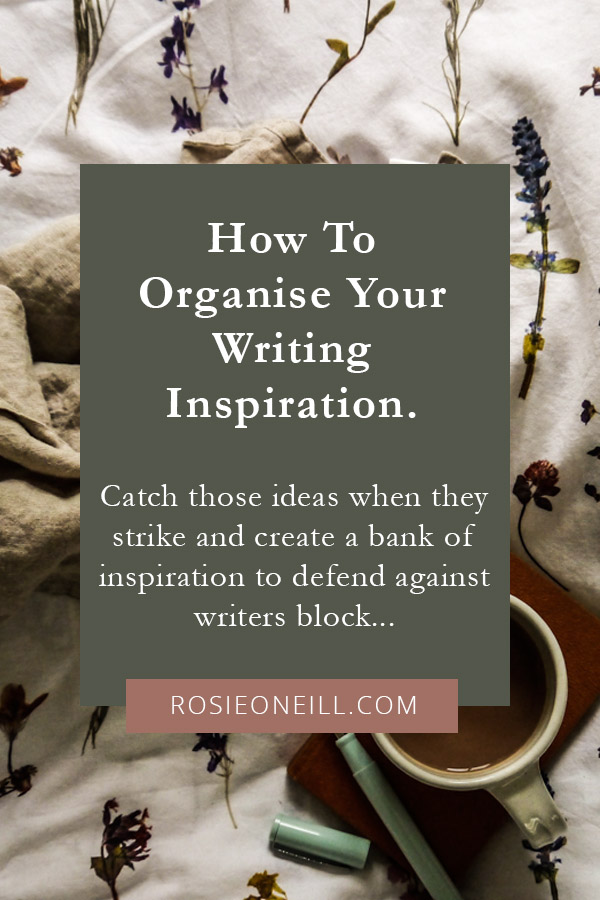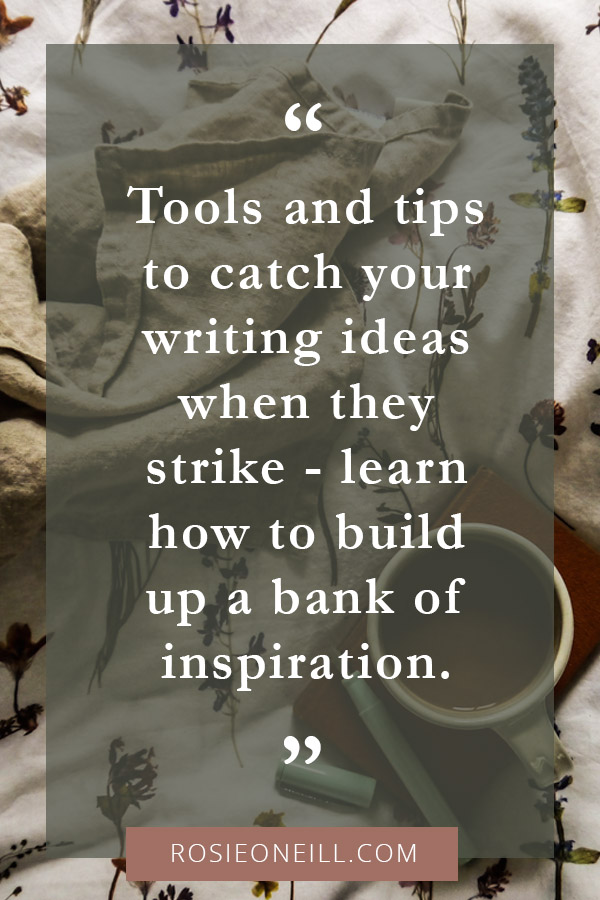How to organise your ideas
We've all had that feeling of the perfect idea arriving at exactly the wrong moment. Maybe you've just got into bed, maybe you're about to get off the bus and head into the office, maybe the timer for dinner is going off.
But what if you could find a way to catch all of those ideas when they pop up, and get them filed away and organised appropriately?
Organising your writing inspiration means that when you actually do have the time to sit down and write, you've got a bank of story ideas, plot hole plugs, and character descriptions all ready to go. And how does that help? Less time settling in or faffing around, searching Pinterest for the perfect bit of inspiration for your setting; more time actually getting those words down.
I recommend a few different tools for organising inspiration, ones that work in tangent with each other, but the key to all of these is that you can usually access them whenever and wherever you need to. Whether you're in bed, just stepped out of the shower, or halfway up a mountain - you need to be ready for lightning to strike!
Tool number one: The writers notebook
A simple notebook is not to be underestimated and you probably have one or two that you haven't got around to using yet. Separate the notebook into three sections (use post-it notes to create tabs, or fold down the page corners).
One for ideas relating to your current wip - scene ideas, snippets of dialogue, clothing descriptions - any of those random thoughts that pop up whenever you're away from the document.
One for things you need to research. This is VERY helpful for staying in flow and on track as you write. Don't be afraid to highlight parts of your wip that you need to research further and make a note of it in your notebook. This could be anything from a historical detail or medical info you need to fact check, or a quote that you need to attribute accurately.
One for unrelated ideas. Here you write down any ideas that are not to do with your current project or wip. It's fine to leave them here until you need them/have time to deal with them; putting them here helps you to stay focused and not get distracted by shiny-idea-syndrome.
The notebook needs to be small enough to conveniently carry everywhere with you, and big enough to write comfortably in (I find A6 size works well).
Tool number two: Pinterest
This is where you organise all of your visual inspiration. Even as imaginative and creative people, it can help so much to have a visual point of reference as you write. Sometimes we need to picture something before we describe it, and Pinterest is a great place to narrow down the aesthetics and atmosphere of a written piece.
Create boards for any and everything you can think of. Organise by project (separate boards for each book or story idea), and don't forget to create some more general boards for interesting faces (good for character descriptions) or beautiful settings.
I recommend getting the app on your phone too, so you can have a browsing and pinning session whenever it's convenient (good for long train journeys). Also - you can make boards private if you want to.
Tool number three: Evernote
Evernote is one of my favourite tools for organising writing documents and notes of all kinds, but it really shines as a tool to organise your inspiration.
Create a 'notebook' for each project, then divide down into 'notes' on plot, setting, characters, worldbuilding, research - anything you'll find helpful.
Keep more general 'notebooks' to drop random unrelated ideas for the future into.
Like with Pinterest, you can access Evernote from your laptop and on the go using the mobile app (the free version allows for two login points). It syncs when you're connected to the internet and auto-saves everything, so there's no need to worry about sending things over between devices.
Ultimately, remember that organisation works best when it really fits you as a person. Try out some of the ideas, see what works, and ignore what doesn't. Some of us work better with pen and paper, some of us need the accessibility or convenience that an app lends. However you organise your ideas, make sure you're getting those thoughts tucked away somewhere so you can start building up that bank of inspiration - perfect for holding writers block at bay.



